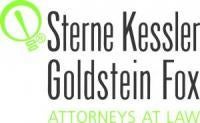On August 21, 2014, the Federal Circuit issued a decision in AbbVie Inc. v. The Mathilda and Terence Kennedy Institute of Rheumatology Trust., holding that the claims to a selection invention were invalid based on obviousness-type double patenting over claims in an earlier-expiring patent that dominated the selection invention.
Patents at Issue
The Mathilda and Terrance Kennedy Institute of Rheumatology Trust (“Kennedy”) is the assignee of U.S. Patent Nos. 7,846,442 (“the ‘442 patent”) and 6,270,766 (“the ‘766 patent”). The ‘766 patent expired on October 8, 2012, while the ‘442 patent expires August 21, 2018. The claims of the ‘766 patent require treating rheumatoid arthritis by co -administering methotrexate and an anti-TNFα antibody, whereas the claims of the ‘442 patent require treating an individual with rheumatoid arthritis whose active disease is incompletely controlled, despite already receiving methotrexate, comprising adjunctively administering methotrexate and an anti-human TNFα antibody. Kennedy conceded that the ‘766 patent encompasses the same inventive subject matter as the ‘442 patent. Kennedy argued that the ‘766 patent claims a broad genus, whereas the ‘442 patent claims a narrower species with unexpected results.
The Federal Circuit’s Decision
The Federal Circuit held the claims to the selection invention of the ‘442 patent were invalid in view of the genus claims of the ‘766 patent. According to the Federal Circuit, “obviousness is not demonstrated merely by showing that an earlier expiring patent dominates a later expiring patent.” (Slip Op. p. 23.) “It is well-settled that a narrow species can be non-obvious and patent eligible despite a patent on its genus.” (Id.) However, the Federal Circuit explained that “not ever y species of a patented genus is separately patentable.” (Id.) “[S]pecies are unpatentable when prior art disclosures describe the genus containing those species such that a person of ordinary skill in the art would be able to envision every member of the class.” (Id.)
“A species contained in a previously patented genus may be patentable if the species manifests unexpected proper ties or produces unexpected results.” (Id. at p. 24.) Here, the Federal Circuit found that Kennedy’s assertions of unexpected results was not supported. (Id. at p. 25.) To determine whether the ‘442 patent is directed to a species exhibiting unexpected results, the Court looked to the ‘766 patent’s specification to determine what results were expected. According to the Court, because the ‘766 patent specification itself discloses the study Kennedy relies upon to demonstrate unexpected results, the ‘466 patent does not claim a species with unexpected results.
What is the Significance of AbbVie?
Based on AbbVie, without unexpected results, claims to a selection invention may be challenged under an obviousness-type double patenting theory.





 />i
/>i
